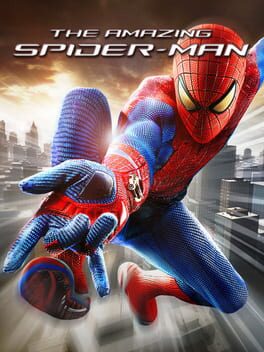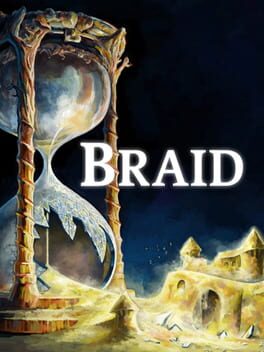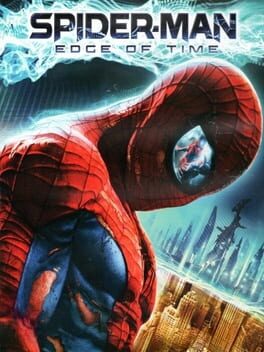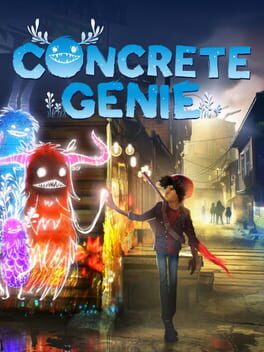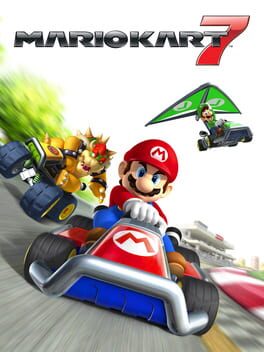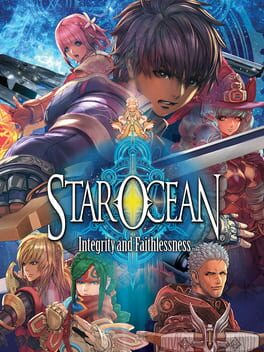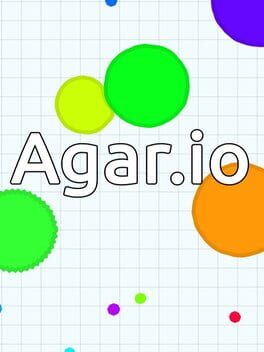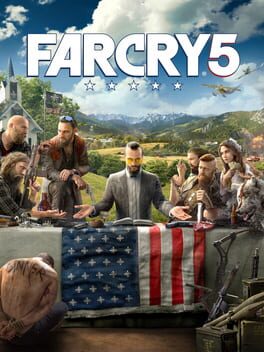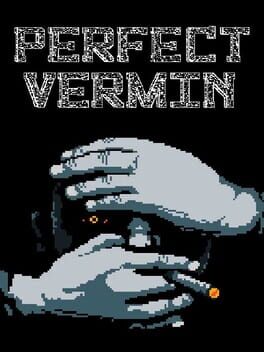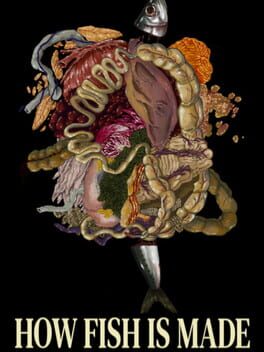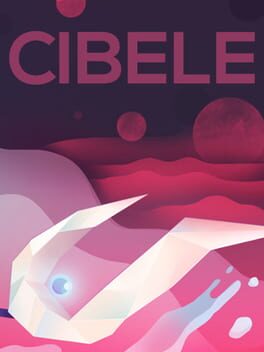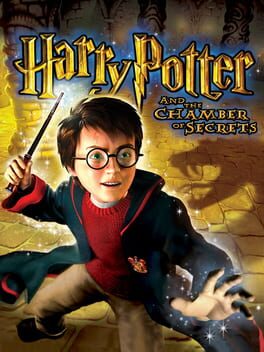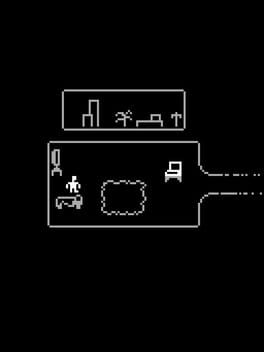KieranQW
The Amazing Spider-Man was special to me as a teenager. I was a Nintendo kid, and back in 2012 my house was still over a year out from owning an HD TV — not to mention any consoles that could take advantage of such technology. to get my gaming fix, I had the Wii and all its access to Virtual Console games, and my beloved Nintendo handhelds. all this to say: I was used to getting the short end of the stick when it came to current gen games, and content to play watered down ports if they came over to the Wii at all. so when this game got a 3DS release — one which bore the weight of everything but the open world from its console counterpart — I was suitably amazed.
I bought The Amazing Spider-Man the day it released, a month before the movie came out, spoiled the hell out of the movie’s ending, and had a great time. then I gave myself that great time again, and again, and again. long car trips, at friends' houses, suspended above my head on late summer nights in my teenagerly loft bed; The Amazing Spider-Man went with me wherever I brought my 3DS. what the handheld port of this game was able to achieve is still impressive, and now after playing both the slightly upgraded Ultimate Edition on Wii U as well as its original release on the PS3, I can say with certainty that it is the ideal way to play. The Amazing Spider-Man benefits tremendously from the lower expectations that come with gaming on the go.
playing this game on a big screen, eight years later: its failures are impossible to ignore — and so are its petty thefts. The Amazing Spider-Man is a cheap Arkham clone through and through. normally I would hesitate to draw direct comparisons — I hardly think the Arkham games are great enough to cudgel other games against — but this game is blatant about lifting the design philosophy of that series. problem is, it lacks all of the polish of their combat and exploration formulae.
items are strewn across levels seemingly at random, often blending into the drab and forgettable environments. upgrades those items help you unlock are very clearly gated behind specific narrative points in the game, so it never feels like you’re any more powerful than the game intends you to be. there are only ever a few (if more than one) open upgrade tracks to apply your tech/level points to. the game could have rewarded the player with a new ability at the end of every story mission, and there would have been no difference in the pace of progression. there is no purpose to the EXP system, as a result. just a nice little bar-go-up animation, which sure feels like progress — until you think about it for any longer than it appears on screen.
as for the combat system, enemy attack animations are finicky and the reach of their attacks are never concrete, at some points allowing them to slide halfway across the floor to reach you. Arkham’s harder difficulties test the player by taking away attack indicators and shortening response time, while keeping animations consistent. if this game were to do the same, it would be virtually impossible, as attack patterns and animations are much too imprecise to telegraph anything to the player. you need that buzzing Spider-Sense to survive, no matter how skilled you grow to be at mashing the punch and dodge buttons.
all of this is made dramatically worse the second the game throws a giant robot at you. here's one way in which this game is genuinely unique from the Arkham series: Batman never got to swing around at mach speed fighting mechs.
with these boss battles, Beenox has offered an addition to the formula they spend the rest of the game ripping off, though much like WB Montreal broke the combat system's back with shitty additions in Arkham Origins, the folks at Beenox completely lose track of the design at the heart of their stolen combat system.
for context: this time around I played the game on the hardest difficulty. this was both an effort to speed up the acquisition of PSN trophies, and because I’ve played the game a dozen times in my life. the god darn robot bosses were the worst part of the experience. on every difficulty, they’re glorified quick time events. you wait around for them to finish whatever laser they’re blasting, maybe shoot them with some webbing, then press the Spider-Man Stuff button (R1 on PS3) and watch as Spider-Man does an attack for you. if you’re unlucky, that attack may require you to mash the circle button to make him punch/pull/web extra hard. riveting stuff. on Super Hero difficulty, the already repetitive boss fights become rigorous exercises in tedium and frustration, as said laser attacks —
(often undodgeable! by the way! you just have to hope and pray that Spider-Man is at the right point in his swing animation to avoid them. hope and prayer are two game mechanics I was not expecting to encounter)
— will kill you in one to two hits and force you to fight through all the phases of the fight again, pressing R1 and mashing circle until either your finger cramps, your eyes dry out, or you fall asleep. these fights weren’t designed for Super Hero difficulty. neither was the rest of the game. it’s clear the only consideration involved in difficulty settings was swapping around a few numbers on enemy health and damage output.
the game isn’t too visually impressive either. it is not as egregious as its sequel; I mean, textures aren’t disappearing in front of your eyes, and you never have to stare down a painfully off-model Peter Parker face — but it's still not worth celebrating. even keeping the limitations of the PS3 in mind, this game is hard on the eyes. a painful yellow/sepia filter is put on the city in an attempt to look more realistic, and while that impressed me as a young teen watching an E3 reveal trailer, nowadays it makes the game look completely washed out. doesn’t help much that all the level environments are grey hallways or brown/green sewers, wherein the only flashes of color are the visually grating lens flares leaping off of computer screens or florescent lights. I’m glad I wore blue light glasses while playing this game; I may have saved myself another year before all my screen-staring makes me go blind.
there are plenty of other nitpicks. the fact that traversing the city to find comic pages feels just a bit too slippery, that webs are back to attaching to nothing, that the writing is truly hack (they take away Peter’s powers and then don’t use that as an opportunity to explore how his sense of responsibility works without them! he just gets them right back after you finish the “no web swinging” bit! how lame!), that the voice acting is so subpar even Nolan North sounds asleep at the microphone; but at this point all those things are just ugly ornaments on a tree that’s already falling over. I can’t say I’d recommend this to anyone other than the most seasoned Spidey fan, but if they’re like me, they wouldn't have a particularly good time either. I should have left this in my memory as a wonderful 3DS experience.
I bought The Amazing Spider-Man the day it released, a month before the movie came out, spoiled the hell out of the movie’s ending, and had a great time. then I gave myself that great time again, and again, and again. long car trips, at friends' houses, suspended above my head on late summer nights in my teenagerly loft bed; The Amazing Spider-Man went with me wherever I brought my 3DS. what the handheld port of this game was able to achieve is still impressive, and now after playing both the slightly upgraded Ultimate Edition on Wii U as well as its original release on the PS3, I can say with certainty that it is the ideal way to play. The Amazing Spider-Man benefits tremendously from the lower expectations that come with gaming on the go.
playing this game on a big screen, eight years later: its failures are impossible to ignore — and so are its petty thefts. The Amazing Spider-Man is a cheap Arkham clone through and through. normally I would hesitate to draw direct comparisons — I hardly think the Arkham games are great enough to cudgel other games against — but this game is blatant about lifting the design philosophy of that series. problem is, it lacks all of the polish of their combat and exploration formulae.
items are strewn across levels seemingly at random, often blending into the drab and forgettable environments. upgrades those items help you unlock are very clearly gated behind specific narrative points in the game, so it never feels like you’re any more powerful than the game intends you to be. there are only ever a few (if more than one) open upgrade tracks to apply your tech/level points to. the game could have rewarded the player with a new ability at the end of every story mission, and there would have been no difference in the pace of progression. there is no purpose to the EXP system, as a result. just a nice little bar-go-up animation, which sure feels like progress — until you think about it for any longer than it appears on screen.
as for the combat system, enemy attack animations are finicky and the reach of their attacks are never concrete, at some points allowing them to slide halfway across the floor to reach you. Arkham’s harder difficulties test the player by taking away attack indicators and shortening response time, while keeping animations consistent. if this game were to do the same, it would be virtually impossible, as attack patterns and animations are much too imprecise to telegraph anything to the player. you need that buzzing Spider-Sense to survive, no matter how skilled you grow to be at mashing the punch and dodge buttons.
all of this is made dramatically worse the second the game throws a giant robot at you. here's one way in which this game is genuinely unique from the Arkham series: Batman never got to swing around at mach speed fighting mechs.
with these boss battles, Beenox has offered an addition to the formula they spend the rest of the game ripping off, though much like WB Montreal broke the combat system's back with shitty additions in Arkham Origins, the folks at Beenox completely lose track of the design at the heart of their stolen combat system.
for context: this time around I played the game on the hardest difficulty. this was both an effort to speed up the acquisition of PSN trophies, and because I’ve played the game a dozen times in my life. the god darn robot bosses were the worst part of the experience. on every difficulty, they’re glorified quick time events. you wait around for them to finish whatever laser they’re blasting, maybe shoot them with some webbing, then press the Spider-Man Stuff button (R1 on PS3) and watch as Spider-Man does an attack for you. if you’re unlucky, that attack may require you to mash the circle button to make him punch/pull/web extra hard. riveting stuff. on Super Hero difficulty, the already repetitive boss fights become rigorous exercises in tedium and frustration, as said laser attacks —
(often undodgeable! by the way! you just have to hope and pray that Spider-Man is at the right point in his swing animation to avoid them. hope and prayer are two game mechanics I was not expecting to encounter)
— will kill you in one to two hits and force you to fight through all the phases of the fight again, pressing R1 and mashing circle until either your finger cramps, your eyes dry out, or you fall asleep. these fights weren’t designed for Super Hero difficulty. neither was the rest of the game. it’s clear the only consideration involved in difficulty settings was swapping around a few numbers on enemy health and damage output.
the game isn’t too visually impressive either. it is not as egregious as its sequel; I mean, textures aren’t disappearing in front of your eyes, and you never have to stare down a painfully off-model Peter Parker face — but it's still not worth celebrating. even keeping the limitations of the PS3 in mind, this game is hard on the eyes. a painful yellow/sepia filter is put on the city in an attempt to look more realistic, and while that impressed me as a young teen watching an E3 reveal trailer, nowadays it makes the game look completely washed out. doesn’t help much that all the level environments are grey hallways or brown/green sewers, wherein the only flashes of color are the visually grating lens flares leaping off of computer screens or florescent lights. I’m glad I wore blue light glasses while playing this game; I may have saved myself another year before all my screen-staring makes me go blind.
there are plenty of other nitpicks. the fact that traversing the city to find comic pages feels just a bit too slippery, that webs are back to attaching to nothing, that the writing is truly hack (they take away Peter’s powers and then don’t use that as an opportunity to explore how his sense of responsibility works without them! he just gets them right back after you finish the “no web swinging” bit! how lame!), that the voice acting is so subpar even Nolan North sounds asleep at the microphone; but at this point all those things are just ugly ornaments on a tree that’s already falling over. I can’t say I’d recommend this to anyone other than the most seasoned Spidey fan, but if they’re like me, they wouldn't have a particularly good time either. I should have left this in my memory as a wonderful 3DS experience.
2008
i'm a tremendous fan of everything this game was able to accomplish. its open-ended presentation means infinite and distinct interpretations by all of its players; to me it reads as equal parts personal essay and adaptation of orpheus and eurydice, all wrapped in the assumed narrative structure of a super mario. what a brilliant little piece of art!
TBD
a perfectly cute ten minute distraction. only two endings, both the result of only a few moments' worth of space bar tapping. I only wish the "date" portion were longer before the twist begins, so that I may have gotten invested before things went awry. a worthwhile little bit of game-jamming, nonetheless! I'm excited to seek out what else Mimi Chiu has created.
I do not miss the era of Activision's control over the Spider-Man license. However, I do miss when Spider-Man games with distinctly comic-booky narrative texture and uniquely sorta-busted game design were something to look forward to. If Insomniac's games offer the taste of an upscale restaurant close to your new place in the city, games like Edge of Time deliver the sweet taste of your hometown Mexican joint; the one that drenches every entree in too much sauce but whose queso dip still demands a place in your memory.
2019
Concrete Genie is perhaps the most honest collect-athon video game I have ever played.
This honesty makes me feel like a sucker. In one sloppy and unenthusiastic stroke of the developers’ brush, my tendency towards Trophy Completionism is spotlit and made a fool of by this game. This game, which attempts no meaningful follow-through on any of its core systems. This game, which presents a narrative experience better suited to the overflow shelves in the YA section of your local library than a years-labored-for multimedia product. This game, which only qualifies as such so far as it requires button inputs on a DualShock 4 controller to operate. This game, whose player-initiated verbs are not as varied or confident as a children’s book of color-by-numbers.
Allow me to explain: in Concrete Genie you control a boy with a big magical paintbrush. You use this paintbrush to paint on the walls of Concrete Genie’s seaside town environment. Holding the right trigger and wobbling around your accelerometer-equipped controller, you paint pictures, and you paint creatures; the titular Genies. These Genies, once painted, help you with various environmental tasks (fire Genies burn glowing red paper, electric Genies zap yellow voltage boxes, etc.). These tasks, when completed, reveal previously locked sections of the seaside town. Hanging from the walls of every building in this town are an interconnected series of string lights, as though the city beautification committee were headed up by a college freshman with a Pinterest-dictated shopping list. Paint these walls with your big paintbrush to light the lights to open gates, allowing further access to more walls to be painted. Repeat until you’ve run out of walls, or until the melatonin gummies kick in.
Additionally, there are glowing notebook pages floating around waiting to be walked into. When walked into, they offer you a new image to paint on walls, or a new cosmetic flourish for your Genie creations. Let not this chase towards glowing objects tempt you, though: It does not matter what you paint on the walls. No matter which image you choose, the lights still light. It does not matter what your Genies look like. No matter their appearance, they still complete their color-coded task.
The narrative expressed in Concrete Genie’s cutscenes gives us a little more reason to be painting these pictures and Genies everywhere: the boy with the brush is the victim of bullying. He is an artistic boy. He fondly remembers a more beautiful version of his town from his youth, before an oil spill and a whole lot of negative teenage energy dirtied up the place. The boy’s bullies tear apart his notebook of sketches, and paint Bad Graffiti all over the town. You must retrieve the pages, and put up Good Graffiti instead. You must revive the town with your art.
However, it does not matter what you paint on the walls. It does not matter what your Genies look like.
This is a problem.
Your paint action in Concrete Genie is not the kind of Super Mario Sunshine-meets-Kid Pix Deluxe experience you may be expecting, based on the concept of reviving this video game town with your art. You cannot actually paint whatever you’d like, not even in the game’s “free paint” mode. Instead, those pages you collect simply unlock new animated gifs for you to sticker onto the walls of the empty town. Your primary player interaction with everything in the world of Concrete Genie is to slap down stickers like you just blew a whole paycheck on Redbubble, and to wait for something to happen.
In order to get your Genie to do the elemental ability required to solve the puzzle you mentally pieced together minutes ago, you trigger-wobble-place the sticker gif they desire exactly where they desire it. If you were worried this might offer a little too much freedom, worry not; your Genies will tell you this placement information in loud graphic design, you can’t miss it. In order to light the town’s lights to check the progression box required to sticker down your next Genie, you trigger-wobble away using whatever your cursor autoselected on every wall of virtual string lights and wait for a little flash that says “you did it! now do it some more, idiot!”
Occasionally there are patches of wall that put a big red X over your trigger-wobble cursor. In order to sticker them down and light their lights you have to place more stickers exactly as demanded by the nearest Genie. After you do so, they will fill a meter which allows you to press a previously unused button, activating the ability to trigger-wobble-place even harder.
This is not creativity, and this is not a fun player action. This is routinely checking the exit billboards on I-94 in bumper-to-bumper traffic. There is no speed, there is no friction, there is only the slow crawl to your eventual off-ramp.
When Concrete Genie finally does reach its off-ramp, it has the decency to throw a few more verbs in the mix, but by then it's already too late. The addition of enemies to throw paint magic at and a dash ability are implemented in such a baffling way that they both don’t have enough time to make themselves interesting and they grow stale by the end of the game. The way Concrete Genie goes about pacing its final “boss encounters” is to make you tediously splash paint magic at multiple foes at once. This only makes for longer fights, not more interesting ones.
So, given its poor combat design in the end game and the utter lack of game in the paint mechanics, what is left? What is the player actually engaging with here?
The story? Well, maybe; I certainly won’t discount the possibility that Concrete Genie’s bog-standard anti-bullying story was compelling to someone, but it’s so immediately foreseeable and cliched that I’d imagine the age for real connection with its themes caps off at about ten years old. Besides, that story is only served to the player in cutscenes; it certainly does not work its way into the play experience in any meaningful way.
No, the player is compelled to continue by the completion percentage, of course. The upticking numbers next to each district of the town on your minimap are the real driving force here; that sweet ding of the regularly occurring trophy acquisition icon in the corner of the screen demands your further engagement. Because—look! You’re only a few away from that platinum! You might as well burn a few irreplaceable hours of life toiling after some odd digital item or another. Sticker down a couple different gifs in specific locations, and maybe you’ll see your little horned abominations do a special contextual dance that throws a bronze trophy your way. After all, that’s what you sick freaks with accounts on PSNProfiles dot com like to do, right?
It’s sort of ingenious, in a sense, that Concrete Genie lays out so nakedly the perversion of digital trophy hunting. I gave up on its superfluous extras after I glimpsed the freakish trick, and I still feel like a worse person for having played it. How many other games have successfully pulled the trick off, simply because they had a combat system just good enough to distract from my time being sold off by the hour? How many times have I been fooled by a game just slightly more confident in its narrative than Concrete Genie? How many times have I put off something magnificent, like Dragon Quest XI, Super Mario Odyssey, or heck, I dunno, reading Moby Dick; simply because I felt duty-bound to the mediocrity sitting on my Playstation’s hard drive? I like to think I have a lot of life still ahead of me, and those questions still scare me.
So; thank you, game development studio Pixelopus, for designing the game which would finally signal a Marie Kondo-adjacent change in my heart regarding game consumption. I couldn’t do this tidying up without you. And, apologies in advance, but I will not be playing your next game. I hope you understand.
This honesty makes me feel like a sucker. In one sloppy and unenthusiastic stroke of the developers’ brush, my tendency towards Trophy Completionism is spotlit and made a fool of by this game. This game, which attempts no meaningful follow-through on any of its core systems. This game, which presents a narrative experience better suited to the overflow shelves in the YA section of your local library than a years-labored-for multimedia product. This game, which only qualifies as such so far as it requires button inputs on a DualShock 4 controller to operate. This game, whose player-initiated verbs are not as varied or confident as a children’s book of color-by-numbers.
Allow me to explain: in Concrete Genie you control a boy with a big magical paintbrush. You use this paintbrush to paint on the walls of Concrete Genie’s seaside town environment. Holding the right trigger and wobbling around your accelerometer-equipped controller, you paint pictures, and you paint creatures; the titular Genies. These Genies, once painted, help you with various environmental tasks (fire Genies burn glowing red paper, electric Genies zap yellow voltage boxes, etc.). These tasks, when completed, reveal previously locked sections of the seaside town. Hanging from the walls of every building in this town are an interconnected series of string lights, as though the city beautification committee were headed up by a college freshman with a Pinterest-dictated shopping list. Paint these walls with your big paintbrush to light the lights to open gates, allowing further access to more walls to be painted. Repeat until you’ve run out of walls, or until the melatonin gummies kick in.
Additionally, there are glowing notebook pages floating around waiting to be walked into. When walked into, they offer you a new image to paint on walls, or a new cosmetic flourish for your Genie creations. Let not this chase towards glowing objects tempt you, though: It does not matter what you paint on the walls. No matter which image you choose, the lights still light. It does not matter what your Genies look like. No matter their appearance, they still complete their color-coded task.
The narrative expressed in Concrete Genie’s cutscenes gives us a little more reason to be painting these pictures and Genies everywhere: the boy with the brush is the victim of bullying. He is an artistic boy. He fondly remembers a more beautiful version of his town from his youth, before an oil spill and a whole lot of negative teenage energy dirtied up the place. The boy’s bullies tear apart his notebook of sketches, and paint Bad Graffiti all over the town. You must retrieve the pages, and put up Good Graffiti instead. You must revive the town with your art.
However, it does not matter what you paint on the walls. It does not matter what your Genies look like.
This is a problem.
Your paint action in Concrete Genie is not the kind of Super Mario Sunshine-meets-Kid Pix Deluxe experience you may be expecting, based on the concept of reviving this video game town with your art. You cannot actually paint whatever you’d like, not even in the game’s “free paint” mode. Instead, those pages you collect simply unlock new animated gifs for you to sticker onto the walls of the empty town. Your primary player interaction with everything in the world of Concrete Genie is to slap down stickers like you just blew a whole paycheck on Redbubble, and to wait for something to happen.
In order to get your Genie to do the elemental ability required to solve the puzzle you mentally pieced together minutes ago, you trigger-wobble-place the sticker gif they desire exactly where they desire it. If you were worried this might offer a little too much freedom, worry not; your Genies will tell you this placement information in loud graphic design, you can’t miss it. In order to light the town’s lights to check the progression box required to sticker down your next Genie, you trigger-wobble away using whatever your cursor autoselected on every wall of virtual string lights and wait for a little flash that says “you did it! now do it some more, idiot!”
Occasionally there are patches of wall that put a big red X over your trigger-wobble cursor. In order to sticker them down and light their lights you have to place more stickers exactly as demanded by the nearest Genie. After you do so, they will fill a meter which allows you to press a previously unused button, activating the ability to trigger-wobble-place even harder.
This is not creativity, and this is not a fun player action. This is routinely checking the exit billboards on I-94 in bumper-to-bumper traffic. There is no speed, there is no friction, there is only the slow crawl to your eventual off-ramp.
When Concrete Genie finally does reach its off-ramp, it has the decency to throw a few more verbs in the mix, but by then it's already too late. The addition of enemies to throw paint magic at and a dash ability are implemented in such a baffling way that they both don’t have enough time to make themselves interesting and they grow stale by the end of the game. The way Concrete Genie goes about pacing its final “boss encounters” is to make you tediously splash paint magic at multiple foes at once. This only makes for longer fights, not more interesting ones.
So, given its poor combat design in the end game and the utter lack of game in the paint mechanics, what is left? What is the player actually engaging with here?
The story? Well, maybe; I certainly won’t discount the possibility that Concrete Genie’s bog-standard anti-bullying story was compelling to someone, but it’s so immediately foreseeable and cliched that I’d imagine the age for real connection with its themes caps off at about ten years old. Besides, that story is only served to the player in cutscenes; it certainly does not work its way into the play experience in any meaningful way.
No, the player is compelled to continue by the completion percentage, of course. The upticking numbers next to each district of the town on your minimap are the real driving force here; that sweet ding of the regularly occurring trophy acquisition icon in the corner of the screen demands your further engagement. Because—look! You’re only a few away from that platinum! You might as well burn a few irreplaceable hours of life toiling after some odd digital item or another. Sticker down a couple different gifs in specific locations, and maybe you’ll see your little horned abominations do a special contextual dance that throws a bronze trophy your way. After all, that’s what you sick freaks with accounts on PSNProfiles dot com like to do, right?
It’s sort of ingenious, in a sense, that Concrete Genie lays out so nakedly the perversion of digital trophy hunting. I gave up on its superfluous extras after I glimpsed the freakish trick, and I still feel like a worse person for having played it. How many other games have successfully pulled the trick off, simply because they had a combat system just good enough to distract from my time being sold off by the hour? How many times have I been fooled by a game just slightly more confident in its narrative than Concrete Genie? How many times have I put off something magnificent, like Dragon Quest XI, Super Mario Odyssey, or heck, I dunno, reading Moby Dick; simply because I felt duty-bound to the mediocrity sitting on my Playstation’s hard drive? I like to think I have a lot of life still ahead of me, and those questions still scare me.
So; thank you, game development studio Pixelopus, for designing the game which would finally signal a Marie Kondo-adjacent change in my heart regarding game consumption. I couldn’t do this tidying up without you. And, apologies in advance, but I will not be playing your next game. I hope you understand.
2011
I now present a haiku. unpublished since one fateful English 105 creative writing portfolio in 2017, this is a work inspired by long nights playing Mario Kart 7 over download play in my then-girlfriend's dorm room. please enjoy this shy-ku, as she referred to it:
Shy Guy is the best.
With his kart I win the race;
I like his noise: "weeauuur!"
Shy Guy is the best.
With his kart I win the race;
I like his noise: "weeauuur!"
that little witch lady's fetch quests were the only semi-interesting section of the game loop. every time I was forced to progress the story instead of mindlessly increment some stat or other, I was reminded that those stats were going up for absolutely no good reason. utter waste of time. deleted from my hard drive out of fear; I knew I would have plunked down further hours of my life simply out of inertia if I had kept Integrity and Faithlessness within controller's reach.
perhaps worthwhile to the most fervent number-clutchers in the game liking community, though only after all the better RPG franchises have been exhausted. I still have too many good games to play to settle for this one.
perhaps worthwhile to the most fervent number-clutchers in the game liking community, though only after all the better RPG franchises have been exhausted. I still have too many good games to play to settle for this one.
2015
back in high school, my AP composition and language class was among the easiest A's I ever earned. we wrote essays maybe once monthly, answered comprehension questions for books I had already read, and read from a book about syntax extremely occasionally. what I'm saying is: there was a lot of downtime. somebody must have thought we sixteen year olds would better osmose the material if we had days of nothing in between. and you know what, maybe they were right! I'm sitting here now, six years later, writing words in the English language; I must have taken more away from that class than I did pre-calculus.
for the entire year, there sat a cart full of school laptops at the front of the classroom. I don't know how or why they never left. teachers at my high school were supposed to reserve the carts for a day at a time. we didn't have that many carts! I suppose Mrs. Comp and Lang used her argumentative prowess to secure their long-term home. in any case, we were supposed to use the computers to... write? I guess? google historically important essays, and rub our chins in admiration of their stirring prose? feed our few free clicks to pay-gated online publications? well, we rarely did any of that. we played agar.io instead. every single day.
four friends and I arranged our desks into a row in the back of the classroom, turned in any homework from the night before, and unless it was a blue-moon-adjacent day of planned academic enrichment, we all logged on and embiggened our cultures for the full class period. my username was always "peenboi". if ever you had fifteen minutes of microbial growth gobbled up by a big dot named "peenboi", that was me, and I'm not sorry. it was more fun than reading the opinion section of the New Yorker.
for the entire year, there sat a cart full of school laptops at the front of the classroom. I don't know how or why they never left. teachers at my high school were supposed to reserve the carts for a day at a time. we didn't have that many carts! I suppose Mrs. Comp and Lang used her argumentative prowess to secure their long-term home. in any case, we were supposed to use the computers to... write? I guess? google historically important essays, and rub our chins in admiration of their stirring prose? feed our few free clicks to pay-gated online publications? well, we rarely did any of that. we played agar.io instead. every single day.
four friends and I arranged our desks into a row in the back of the classroom, turned in any homework from the night before, and unless it was a blue-moon-adjacent day of planned academic enrichment, we all logged on and embiggened our cultures for the full class period. my username was always "peenboi". if ever you had fifteen minutes of microbial growth gobbled up by a big dot named "peenboi", that was me, and I'm not sorry. it was more fun than reading the opinion section of the New Yorker.
2018
deeply uninspiring. I like a lot of games where you check off a list of repetitive tasks; there’s something addictive about tricking your brain into feeling productive by filling out a digital map and firing a video gun. Far Cry never pulls off that trick. not for one second do I feel fulfilled cycling through its inane objectives.
I wish I could take my time on earth back from Far Cry 5. this franchise should be deleted from history.
I wish I could take my time on earth back from Far Cry 5. this franchise should be deleted from history.
2020
2022
2015
(text originally written 4/25/2022, for an essay about sharing the art you love with the people you love, finding catharsis in frivolous trinkets, and buying a new computer. relevant passages for Cibele reproduced here with minimal edits)
phone newly cased, figure freshly unboxed, my new computer still had 48 minutes of updating to go. My roommate's kitchen tasks concluded themselves. Our conversation lulled. She took a call from her boyfriend in the other room. I closed my door, sealing the music into my own bedroom. just me and the Forth Wanderers. I tidied up a little bit. I flipped back through the book I had finished earlier: Cara Ellison's Embed With Games; a chronicle of her year doing gonzo journalism on the independant game development scene back in 2013. crashing on couches all over the world, she wrote profiles of fascinating artists all working in the most exciting mixed-media art form we've got, as of this writing.
I had been keeping a list of whose games I wanted to immediately seek out after finishing the book. the first was Nina Freeman, starting with her then-in-development game Cibele. I found her itch.io page on my phone. thirty nine minutes to go. I paid eight dollars for her game. I scrolled through the rest of her published works. I spelunked into some of the poetry on her website. twenty three minutes to go. some of that poetry was included in Embed, offering a glimpse into the work she discussed in her interviews with Ellison. I was really taken by them. they portray an honesty and an open sexuality, revolving around the kind of online communities which don't exist in quite the same way anymore.
the game she was working on was about falling in love with someone through an MMO, circa 2009. getting to know someone through hours of daily cooperation online. taking suggestive photos for your e-crush on a digital camera, transferring them from SD card to computer, and sending them over email. virtual connection spilling over into our real lives in larger doses, before micro-blogging and content algorithms and endless streams of disparate video strained that connection into something even thinner. something almost entirely one-sided. I knew I needed to play her game. it was going to be the first thing I did once my computer was finished. twelve minutes to go.
finally, the wait was over. I input all the passwords that needed inputting. I clicked all the update buttons I could find. I tested the keyboard for a minute. I still like my Keychron better. I tested the camera. it still sucks. they've been putting the same iPhone 4S front-facing camera in these things for the better part of a decade. it's ridiculous. I tested how hot the thing runs while editing video in Final Cut Pro. finally, I don't have to fear for my computer setting my wooden IKEA desk on fire. all that done, I installed and played Cibele.
it was beautiful. it was voyeuristic, and it was uncomfortable, and it made me laugh out loud for no one, and I loved it. it was art. you should play it too. it's only about two hours long. it should run on anything. I dare not say anything about its particulars—those are best discovered on your own.
phone newly cased, figure freshly unboxed, my new computer still had 48 minutes of updating to go. My roommate's kitchen tasks concluded themselves. Our conversation lulled. She took a call from her boyfriend in the other room. I closed my door, sealing the music into my own bedroom. just me and the Forth Wanderers. I tidied up a little bit. I flipped back through the book I had finished earlier: Cara Ellison's Embed With Games; a chronicle of her year doing gonzo journalism on the independant game development scene back in 2013. crashing on couches all over the world, she wrote profiles of fascinating artists all working in the most exciting mixed-media art form we've got, as of this writing.
I had been keeping a list of whose games I wanted to immediately seek out after finishing the book. the first was Nina Freeman, starting with her then-in-development game Cibele. I found her itch.io page on my phone. thirty nine minutes to go. I paid eight dollars for her game. I scrolled through the rest of her published works. I spelunked into some of the poetry on her website. twenty three minutes to go. some of that poetry was included in Embed, offering a glimpse into the work she discussed in her interviews with Ellison. I was really taken by them. they portray an honesty and an open sexuality, revolving around the kind of online communities which don't exist in quite the same way anymore.
the game she was working on was about falling in love with someone through an MMO, circa 2009. getting to know someone through hours of daily cooperation online. taking suggestive photos for your e-crush on a digital camera, transferring them from SD card to computer, and sending them over email. virtual connection spilling over into our real lives in larger doses, before micro-blogging and content algorithms and endless streams of disparate video strained that connection into something even thinner. something almost entirely one-sided. I knew I needed to play her game. it was going to be the first thing I did once my computer was finished. twelve minutes to go.
finally, the wait was over. I input all the passwords that needed inputting. I clicked all the update buttons I could find. I tested the keyboard for a minute. I still like my Keychron better. I tested the camera. it still sucks. they've been putting the same iPhone 4S front-facing camera in these things for the better part of a decade. it's ridiculous. I tested how hot the thing runs while editing video in Final Cut Pro. finally, I don't have to fear for my computer setting my wooden IKEA desk on fire. all that done, I installed and played Cibele.
it was beautiful. it was voyeuristic, and it was uncomfortable, and it made me laugh out loud for no one, and I loved it. it was art. you should play it too. it's only about two hours long. it should run on anything. I dare not say anything about its particulars—those are best discovered on your own.
Baby's First RPG, and the first Game Boy Color game I ever owned.
sometime in 2006, my local target had a stockpile of these for dirt cheap. they must have been there for years. would have been a hard sell at first, given that there was a shiny new GBA version on the shelves at the same time. in the years between the game’s release and my chancing upon it, the GBA copies were all snatched up. only the dusty GBC boxes remained.
(in retrospect I can say: those poor kids that got the GBA version! they missed out on the real deal)
my young eyes lit up as I noticed them on the clearance rack. before I could trail too far behind my mom and the shopping cart, I pulled the arm of her sweater. I pointed up at the my then-favorite little wizard guy. the boxes were lined up on the top shelf, and my growth spurt was still a number of years out. she looked over the box. the label in the corner said it would work on my Game Boy Advance.
"that's the one you've got, right?"
I enthusiastically confirmed.
my mom was a librarian, and had already encouraged me in reading the first three Harry Potter books. JK Rowling wasn't a Public Sicko yet, so it was still morally okay to be a fan. I had been going cover to cover on those early books for as long as I knew how to read. by this time I had already worn a Harry Potter costume for Halloween at least twice. our DVD copy of Chamber of Secrets was used with such regularity that the cardboard sleeve for its case had begun to warp from the oils of my grubby little child fingers. if my mom was ever going to buy me a game months removed from Christmas or my birthday, it was going to be this one. to my great joy, she did!
little did I know playing it was going to be as much of a learning experience as reading my first novel.
knowing only games where one button jumped and the other button punched, the menus and numbers of turn based combat were completely alien to me. "grinding" was not in my lexicon. I brutishly forced my way through. "don't walk into the glowing beans" was my strategy for winning, which complicated things when my little friend Harry was never strong enough to defeat bosses with the basic attack spell alone. pokemon barely touched my childhood; this was my equivalent to fighting the elite four with nothing but tackles.
as my elementary years passed, I kept going back to the big translucent cartridge in my bag full of GBA games. every time I did, I had figured out something new about gameplay, or menu navigation, or like, basic math. I got to experience it anew every time. I still do now, replaying the game in an emulator as a studied and grown-up RPG enjoyer.
(sidenote: even now, all 8-bit music sounds to me like Chamber of Secrets. its status as the GBC's final game means it was the endpoint for that sound chip; the final compositions for a format then thirteen years old. they do not disappoint. those tracks are vivid, draining every last drop of auditory depth out of that ancient little game box. while first exploring Raya Lucaria in Elden Ring earlier this year, I put on these old wizard school tunes. it was bliss. good work, Ian Stocker!)
sometime in 2006, my local target had a stockpile of these for dirt cheap. they must have been there for years. would have been a hard sell at first, given that there was a shiny new GBA version on the shelves at the same time. in the years between the game’s release and my chancing upon it, the GBA copies were all snatched up. only the dusty GBC boxes remained.
(in retrospect I can say: those poor kids that got the GBA version! they missed out on the real deal)
my young eyes lit up as I noticed them on the clearance rack. before I could trail too far behind my mom and the shopping cart, I pulled the arm of her sweater. I pointed up at the my then-favorite little wizard guy. the boxes were lined up on the top shelf, and my growth spurt was still a number of years out. she looked over the box. the label in the corner said it would work on my Game Boy Advance.
"that's the one you've got, right?"
I enthusiastically confirmed.
my mom was a librarian, and had already encouraged me in reading the first three Harry Potter books. JK Rowling wasn't a Public Sicko yet, so it was still morally okay to be a fan. I had been going cover to cover on those early books for as long as I knew how to read. by this time I had already worn a Harry Potter costume for Halloween at least twice. our DVD copy of Chamber of Secrets was used with such regularity that the cardboard sleeve for its case had begun to warp from the oils of my grubby little child fingers. if my mom was ever going to buy me a game months removed from Christmas or my birthday, it was going to be this one. to my great joy, she did!
little did I know playing it was going to be as much of a learning experience as reading my first novel.
knowing only games where one button jumped and the other button punched, the menus and numbers of turn based combat were completely alien to me. "grinding" was not in my lexicon. I brutishly forced my way through. "don't walk into the glowing beans" was my strategy for winning, which complicated things when my little friend Harry was never strong enough to defeat bosses with the basic attack spell alone. pokemon barely touched my childhood; this was my equivalent to fighting the elite four with nothing but tackles.
as my elementary years passed, I kept going back to the big translucent cartridge in my bag full of GBA games. every time I did, I had figured out something new about gameplay, or menu navigation, or like, basic math. I got to experience it anew every time. I still do now, replaying the game in an emulator as a studied and grown-up RPG enjoyer.
(sidenote: even now, all 8-bit music sounds to me like Chamber of Secrets. its status as the GBC's final game means it was the endpoint for that sound chip; the final compositions for a format then thirteen years old. they do not disappoint. those tracks are vivid, draining every last drop of auditory depth out of that ancient little game box. while first exploring Raya Lucaria in Elden Ring earlier this year, I put on these old wizard school tunes. it was bliss. good work, Ian Stocker!)
tremendous respect for the semicolonically conjoined double title. that's how titles should always be.
beautiful prose. remember how fucking dire the state of making art about the pandemic was, back in 2020? remember how it hasn't gotten much better at all in the two years since? well, videodante pulled it off wonderfully, while the state of the world was still at its worst. remarkable.
beautiful prose. remember how fucking dire the state of making art about the pandemic was, back in 2020? remember how it hasn't gotten much better at all in the two years since? well, videodante pulled it off wonderfully, while the state of the world was still at its worst. remarkable.
nothing like a great 3D platformer to smoothly transition one out of a Gaming Hiatus.
by the end of the introductory stage of Forgotten Land, I was transformed. before, I lived a life of ambivalence as regards nintendo's little pink puff baby. now, the urge to play their every interactive adventure overwhelms my senses. kirby, in their magnanimity, breathes new purpose into my small existence. my life now splits into two distinct eras. there was a time before; I live now in the hereafter.
I love kirby, and you can too!
by the end of the introductory stage of Forgotten Land, I was transformed. before, I lived a life of ambivalence as regards nintendo's little pink puff baby. now, the urge to play their every interactive adventure overwhelms my senses. kirby, in their magnanimity, breathes new purpose into my small existence. my life now splits into two distinct eras. there was a time before; I live now in the hereafter.
I love kirby, and you can too!
